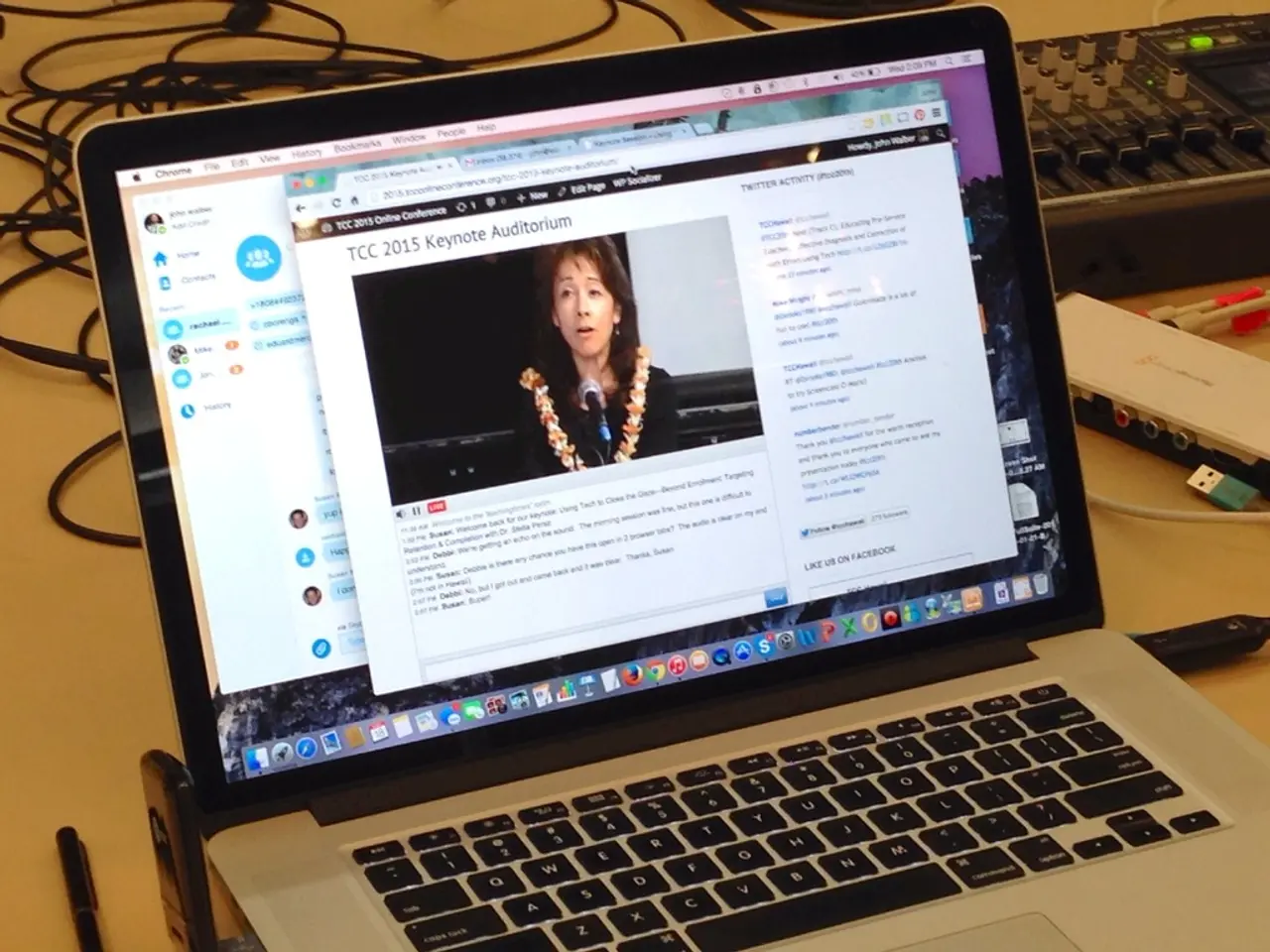Unveiling a new market phase, potentially muffling the voice of the professionals?
In the ever-evolving landscape of the legal profession, the debate on reforming Rule 36, which bans legal advertising in India, has gained momentum. The focus of this discussion revolves around enhancing the visibility and competitiveness of Indian lawyers, particularly on the global stage.
Advocates of reform argue that the current ban silences advocates, limiting their ability to promote their services and eroding their competitive edge abroad. By liberalizing Rule 36 to allow transparent, factual legal advertising under clear ethical guidelines, genuine competition can be fostered, broadening client choice, and projecting Indian legal expertise onto the world stage [1].
On the other hand, arguments against reform often stem from concerns about professionalism, ethics, and the risk of commercialization. Critics fear that advertising could lead to aggressive marketing tactics, celebrity endorsements, and potential misinformation, undermining the dignity and trusted reputation of the legal profession [2]. There is also the fear that legal advertising might compromise client confidentiality or lead to misleading claims.
However, proponents of reform emphasize that regulation, not prohibition, should guide the profession's next chapter on advertising. A graduated compliance framework could be implemented, allowing for the listing of qualifications, core practice areas, representative matters, publications, and fee structures [3]. This approach would align India with jurisdictions that already strike a balance between professional ethics and market reality.
The impact of reform would be particularly beneficial for young practitioners, who could build reputations through demonstrable knowledge rather than inherited prestige [4]. Modern Indian lawyers engage in activities such as advising on policy, lecturing at foreign universities, contributing op-eds, and publishing specialist newsletters. Allowing responsible advertising would unlock gains such as clearer information for clients, differentiation among firms, service innovation, and reassurance for overseas clients [5].
Digital platforms hosting legal content should display the credentials of contributors and enable users to flag inaccuracies, ensuring transparency and accountability [6]. Foreign clients hire Indian counsel for cross-border mergers and acquisitions, technology, infrastructure, and arbitration work, and opening the door to promotion would make it easier for them to identify suitable legal professionals [7].
In summary, reforming Rule 36 to allow regulated advertising can enhance Indian lawyers' global competitiveness and visibility, but it requires carefully designed safeguards to protect professional ethics and client interests [1][2]. The Bar Council of India (BCI) has formed the Cyril Shroff committee to examine how foreign lawyers and law firms might be permitted to practise in India, which could further open up opportunities for Indian lawyers to compete on a global stage.
References:
[1] "The Indian Legal Market: What's Next?" (2021), LexisNexis. [2] "The Pros and Cons of Legal Advertising in India" (2020), Bar & Bench. [3] "Liberalisation without Advertising Reform: A Recipe for Oligopoly in the Indian Legal Services Sector" (2019), Economic and Political Weekly. [4] "Young Practitioners and the Reputation Game" (2020), India Corporate Lawyer. [5] "The Advantages of Allowing Responsible Advertising in the Indian Legal Profession" (2021), Live Law. [6] "Ensuring Transparency in Digital Platforms Hosting Legal Content" (2020), The Hindu. [7] "Foreign Clients and the Indian Legal Profession" (2019), Journal of Indian Law & Society.
- In contrast to traditional notions of professionalism, proponents of reform in the Indian legal profession suggest that the adoption of technology-driven lifestyle changes, such as permitted legal advertising using digital platforms, could bolster the global visibility and competitiveness of Indian lawyers.
- The integration of sports-inspired marketing strategies, where Indian law firms showcase their unique strengths and successes in niche areas like technology and cross-border transactions, could further enhance their appeal to foreign clients seeking superior legal expertise.




